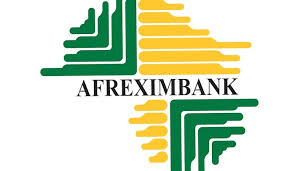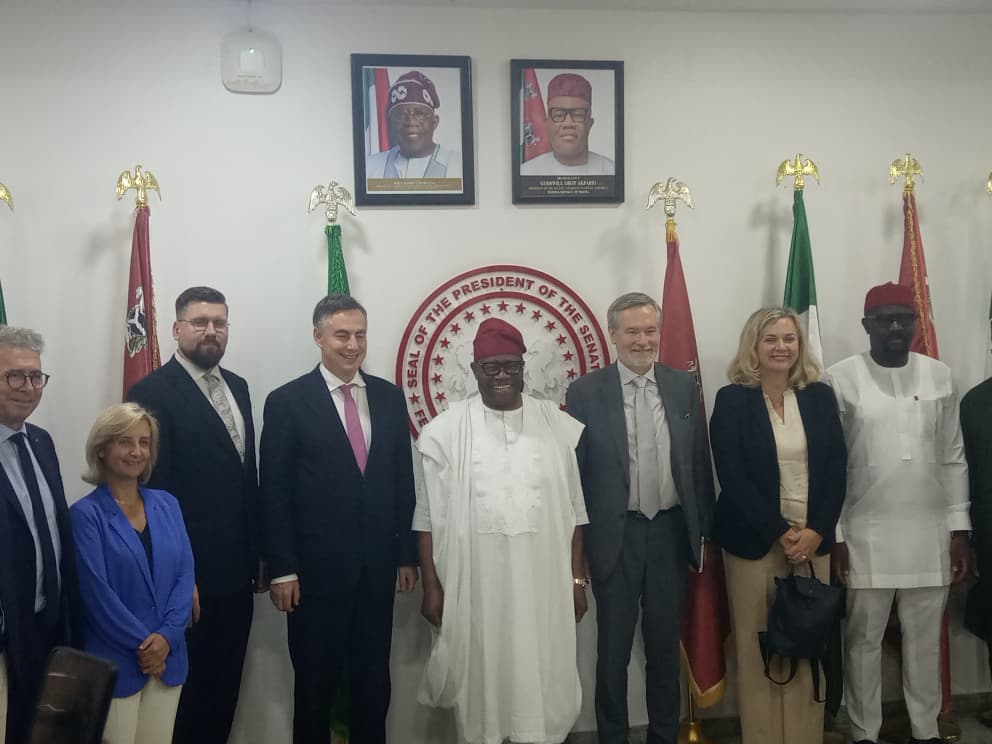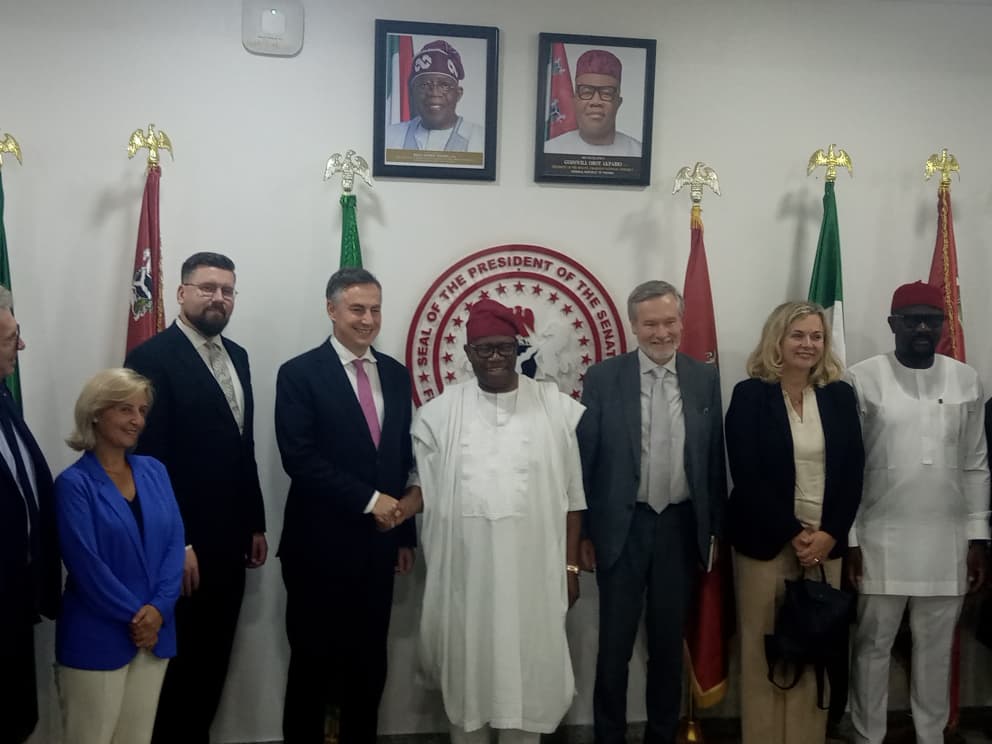Economy
Afreximbank’s African commodity index declines moderately in Q3-2020

The African Export-Import Bank (Afreximbank) says that in its Quarter Three 2020 (Q3-2020) reading of the Afreximbank African Commodity Index (AACI), its composite index fell marginally by one per cent quarter-on-quarter.
It made this known in a statement issued on Wednesday in Cairo, Egypt after the release of the AACI for Q3-2020.
The AACI is a trade-weighted index designed to track the price performance of 13 different commodities of interest to Africa and the bank on a quarterly basis.
The bank said the decline was mainly on account of a pull-back in the energy sub-index.
“In comparison, the agricultural commodities sub-index rose to become the top performer in the quarter, outstripping gains in base and precious metals.”
The bank said that the recurrence of adverse commodity terms of trade shocks had been the bane of African economies.
It added that in tracking the movements in commodity prices, the AACI highlights areas requiring pre-emptive measures by the bank, its key stakeholders and policymakers in its member countries and global institutions interested in the African market.
This was to effectively mitigate risks associated with commodity price volatility, it said.
Giving an overview of the AACI for Q3-2020, it said there were indications that on a quarterly basis, the energy sub-index fell by eight per cent largely due to a sharp drop in oil prices as Chinese demand waned and Saudi Arabia cut its pricing.
Also, that the agricultural commodities sub-index rose 13 per cent due in part to sub-optimal weather conditions in major producing countries.
It, however, said that within that index, sugar prices gained on expectations of firm import demand from China and fears that Thailand’s crop could shrink in 2021 following a drought.
According to the bank, cocoa futures enjoyed a pre-election premium in Ghana and Côte d’Ivoire in spite of the looming risk of bumper harvests in the 2020/21 season and the decline in the price of cocoa butter.
It said cotton rose to its highest level since February due to the threat of storm Sally on the United States of America’s cotton harvest, coupled with poor field conditions in the U.S.
It added that within that index also, coffee rose 10 per cent as La Nina weather conditions in Vietnam, the world’s largest producer of Robusta coffee raised the possibility of a shortage in exports.
Other indications are that base metals sub-index rose nine per cent due to several factors including ongoing supply concerns for copper in Chile and Peru and strong demand in China, especially as the State Grid boosted spending to improve the power network.
For precious metals sub-index, the best performer year-to-date rose seven per cent in the quarter as the demand for haven bullion continued in the face of persistent economic challenges triggered by COVID-19 and heightening geopolitical tensions.
In addition, Gold enjoyed record inflows into gold-backed exchange traded funds (ETFs) which offset major weaknesses in jewellery demand, Afreximbank said.
“Regarding the outlook for commodity prices, the AACI highlights the generally conservative market sentiment with consensus forecasts predicting prices to stay within a tight range in the near term with the exception of crude oil, coffee, crude palm oil, cobalt and sugar.”
Dr Hippolyte Fofack, Chief Economist at Afreximbank, said commodity prices in Q3-2020 had largely been impacted by COVID-19.
He said that the pandemic had exposed global demand shifts that had seen the oil industry incur backlogs and agricultural commodity prices dwindle in the first half of the year.
“The outlook for 2021 is positive, however, conservative the markets still are. We hope to see an increase in global demand within Q1 and Q2 – 2021 buoyed by the relaxation of most COVID-19 disruptions and restrictions.’’
Our correspondent reports that Afreximbank is a Pan-African multilateral financial institution with the mandate of financing and promoting intra-and extra-African trade.
Economy
JUST IN: FG Halts Planned 15% Import Duty on Petrol, Diesel

By: Fabian Apechihin
The Federal Government has suspended the planned implementation of a 15 percent import duty on petrol and diesel.
This was disclosed on Thursday by George Ene-Ita, Director of Public Affairs at the Nigerian Midstream and Downstream Petroleum Regulatory Authority (NMDPRA), who urged Nigerians to avoid panic buying.
President Bola Tinubu had earlier, on October 29, approved the imposition of the tariff following a proposal by the Executive Chairman of the Federal Inland Revenue Service (FIRS), Zacch Adedeji. The approval, conveyed in a letter signed by the President’s Private Secretary, Damilotun Aderemi, was intended to take effect from November 21, 2025.
The proposed policy sought to impose a 15 percent duty on the cost, insurance, and freight (CIF) value of imported petrol and diesel. It was aimed at supporting domestic refineries — such as the Dangote Refinery and modular plants — by making imported fuel less competitive. However, experts cautioned that the move could lead to an increase of up to ₦150 per litre in pump prices and further fuel inflation and transportation costs.
In its latest update, the NMDPRA confirmed that the import duty is no longer under consideration.
“It should also be noted that the implementation of the 15% ad-valorem import duty on imported Premium Motor Spirit (PMS) and Automotive Gas Oil (Diesel) is no longer in view,” the Authority stated.
The agency further assured the public of adequate fuel availability across the country, noting that national stock levels remain within the required sufficiency threshold.
“There is a robust domestic supply of petroleum products — including PMS, AGO, and LPG — from both local refineries and imports, ensuring timely replenishment of depots and retail stations,” the statement added.
NMDPRA cautioned marketers against hoarding, panic buying, or arbitrary price increases, emphasizing that it will continue to monitor the market to prevent any disruption in supply.
“While appreciating the efforts of stakeholders in maintaining smooth and uninterrupted supply, the public is assured of NMDPRA’s commitment to safeguarding national energy security,” the statement concluded.
Economy
FGN, Sign $400m Deal To Boost Local Steel Production

From Hassan Taiye
The Federal Government of Nigeria, FGN, through the Ministry of Steel Development, has signed a Joint Strategic Cooperation Declaration with Stellar Steel Company Limited.
Stellar Steel Company Limited is a steel-manufacturing enterprise established to operate in Nigeria, with major investment backing from Chinese parent groups: Galaxy Group and RSIN Group based in Fuzhou, Fujian Province, China.
The company has committed approximately US$450 million for a steel plant project in Ogun State, Nigeria, scheduled to begin operations by mid-2026.
This landmark partnership is aimed at revitalising Nigeria’s steel industry and reducing the nation’s dependence on imported steel products, according to a statement signed by the the Principal Information Officer, PIO, Ijomah Opia, for the director, Information and Public Relations in the ministry.
The agreement, signed in Abuja, on Tuesday 28th October, 2025 will see Stellar Steel invest $400 million in the construction of a modern Steel Plant in Ewekoro, Ogun State. The project will be developed in three phases, with the first phase expected to begin production by 2026.
The Minister of Steel Development Prince Shuaibu Abubakar Audu signed the agreement when he hosted Mr Li, President of Inner Galaxy Group and other members of the Stellar Steel Company Limited in the Ministry’s Headquarters in Abuja.
According to Prince Audu, the collaboration aligns with the federal government’s goal of achieving 10 million tonnes of crude steel production per annum by 2030, a major step toward industrial self-reliance and economic diversification.
The minister further stated that the Federal Ministry of Steel Development would facilitate policy and infrastructure support, including inclusion of Stellar Steel’s logistics projects in the National Infrastructure Plan and access to available fiscal incentives.
Highlights of the cooperation includes the followings:
1.Development of a localised iron ore supply chain to reduce import dependence and save over $1 billion in foreign exchange annually.
- Creation of more than 2,000 direct and 20,000 indirect jobs across the steel value chain.
- Promotion of green steel production using clean and energy-efficient technologies.
- Strengthening of Nigeria’s position as a regional steel manufacturing hub in West Africa.
Audi also said that in return, Stellar Steel would prioritise local recruitment and training, partnering with Nigerian universities to build technical and managerial expertise in steel production.
Prince Shuaibu emphasised that this strategic cooperation marks a new era for Nigeria’s steel industry and demonstrates the government’s commitment to sustainable industrial growth and economic transformation.
In his remarks the leader of the delegation, Mr Li assured the minister that Stellar Steel would respect all agreements reached and would ensure the completion of the project in record time and assured that all safety standards will be observed.
Mr Li was accompanied during the visit by Mr You Xiastian, Vice Chairman of RSIN Group, Mr Jackie Den, Vice President of Inner Galaxy Group and Mr Yin, Director of RSIN Group.
He recalled that the Minister of Steel Development, Prince Audu, performed the groundbreaking ceremony of the Steel Plant in Ogun State sometime in April, 2025.
Speaking at the signing, representatives of both parties emphasised that the partnership would strengthen Nigeria’s industrial base, create jobs, and foster technology transfer in the sector.
Economy
EU Delegation Strengthens Ties with Nigerian Senate

From Hassan Taiye
A high-level delegation from the European Union (EU) Parliament’s Foreign Affairs Committee, led by Mr. David McAllister, paid a courtesy visit to the Nigerian Senate today October 28, 2025.

“We are here to deepen our understanding of the situation in West Africa and strengthen our partnership with Nigeria,” McAllister said.
Senate President Godswill Akpabio welcomed the delegation, emphasizing Nigeria’s strategic partnership with the EU. “Nigeria is committed to strengthening ties with the EU, highlighting areas of mutual interest, including security, trade, and governance,” Akpabio said.
The delegation, comprising Ambassador Greta Mylott, EU Ambassador to Nigeria and ECOWAS, Miss Zelaya Zorko, Miss Mata Tamido, Sebastian Tankman, General Christophe Gomart, and Sebastian Buharo, is undertaking a comprehensive tour of West Africa, with stops in Nigeria and Ghana.
During the visit, Akpabio shed light on the challenges facing female representation in Nigeria’s parliament. “Women often vote for male candidates, making it difficult for female candidates to win elections,” he noted.
“The Senate is exploring innovative solutions, including constitutional amendments, to boost female participation in the legislative process, with support from organizations like the Black Women’s Forum.”
The EU delegation’s visit aims to foster greater understanding and cooperation between the EU and Nigeria, addressing shared concerns, such as terrorism, climate change, and economic development.
“The EU is committed to supporting Nigeria’s development efforts,” McAllister assured the Senate, emphasizing the bloc’s interest in seeing a stable, prosperous, and democratic Nigeria.
Their visit also includes participation in the forthcoming International Islamic Conference on Security and Governance in West Africa and the Sahel, scheduled for November 4-6, 2025 at ECOWAS Commission.
Akpabio expressed optimism about the potential for enhanced cooperation, highlighting Nigeria’s readiness to work with the EU to address common challenges.
-

 Uncategorized5 years ago
Uncategorized5 years agoFG, states urged to harness flooding for ranching, others with technology – Agbaje
-

 Headlines10 years ago
Headlines10 years agoBreaking: EFCC seals Borno House of Assembly, as Hon members take to their heels
-

 News11 years ago
News11 years agoNigeria Security Operatives Stage Manhunt For Homosexual Perpetrator
-

 News9 years ago
News9 years agoHow 21-year-old Girl fled community over accusation of lesbianism
-

 News10 years ago
News10 years agoYobe Gov Moves Against Deputy
-

 Opinion7 years ago
Opinion7 years ago7 signs she has friend zoned you
-
Technology4 years ago
Online job placement company headhunts women
-

 Headlines10 years ago
Headlines10 years agoBorno Dep Gov Abducts Another Church Leader





